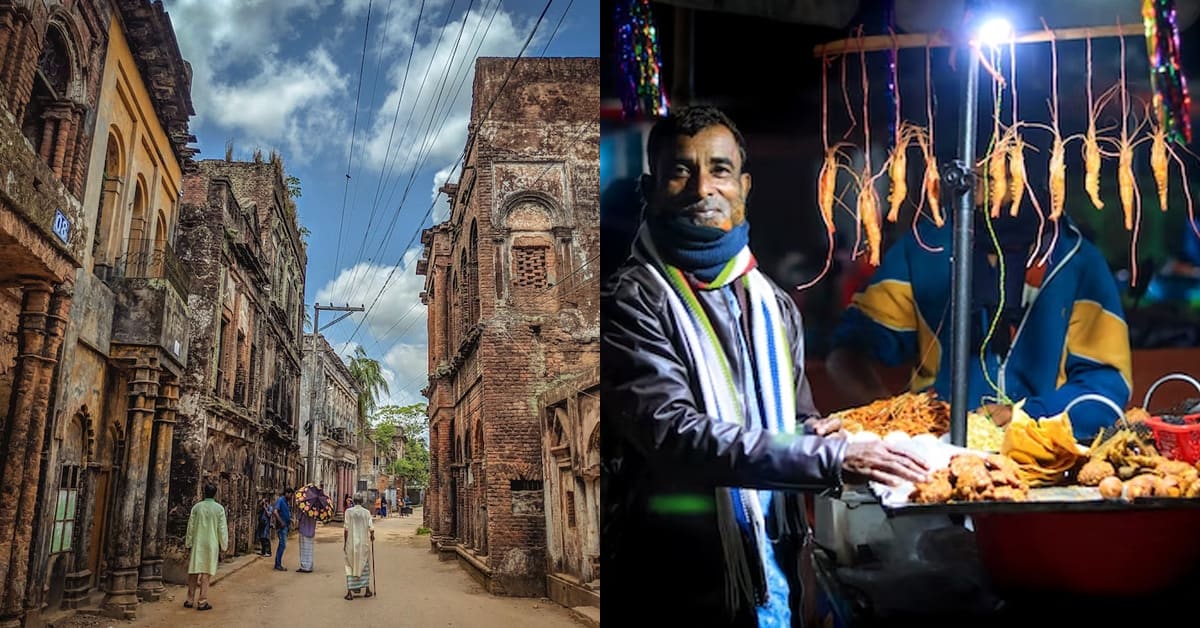Bangladeshi cuisine is a rich and diverse culinary tradition that has been shaped by the country’s geography, history, and cultural influences. Located in South Asia, Bangladesh is a land of rivers, fertile plains, and tropical forests, which provide a wealth of ingredients for its cuisine.
The country’s cuisine is heavily influenced by its neighbors, including India, Pakistan, and Myanmar, as well as its own indigenous traditions. Bangladeshi food is known for its bold flavors, aromatic spices, and complex cooking techniques, which have been passed down through generations.
From spicy curries to sweet desserts, Bangladeshi cuisine offers a unique and delicious culinary experience that is sure to delight any food lover.
Is Bangladeshi food halal?
Yes, most Bangladeshi food is halal, as the majority of the population in Bangladesh is Muslim and follows halal dietary laws.
However, it is always important to check specific dishes’ ingredients and preparation methods to ensure they are halal.
What kind of food do Bangladeshi eat?
Bangladeshi cuisine is diverse and influenced by its geography, history, and religion. Some popular dishes include:
- Rice: Rice is a staple food in Bangladesh and is eaten with almost every meal.
- Fish: Bangladesh is known for its freshwater fish, which is a popular ingredient in many dishes.
- Meat: Beef, chicken, and mutton are commonly used in curries and other dishes.
- Lentils: Lentils are a common ingredient in vegetarian dishes and are often served with rice.
- Vegetables: Vegetables such as eggplant, okra, and potatoes are commonly used in curries and other dishes.
- Spices: Spices such as cumin, coriander, turmeric, and chili powder are commonly used in Bangladeshi cuisine.
- Bread: Naan, paratha, and roti are popular types of bread in Bangladesh.
- Sweets: Bangladeshi sweets include rasgulla, sandesh, and mishti doi.
How can you tell if the food is halal in Bangladesh?
To answer your question, halal food is usually certified by the Islamic Foundation Bangladesh or the Bangladesh Standards and Testing Institution (BSTI) in Bangladesh.
Look for their logos or certifications on the packaging or in the restaurant.
Additionally, many halal restaurants in Bangladesh will display a sign indicating that they serve halal food. It is always best to ask the restaurant staff or the seller about the halal status of the food before consuming it.
Is it hard to find halal food in Bangladesh?
No, it is not hard to find halal food in Bangladesh. Bangladesh is predominantly Muslim, and halal food is widely available in most restaurants and food stalls.
However, it is always advisable to check the halal certification of the food before consuming it.
Some restaurants may serve non-halal food, so it is essential to be cautious and ask for clarification.
Is Bangladeshi food healthy?
Bangladeshi food can be healthy if it is prepared with fresh ingredients and cooked in a healthy way. Traditional Bangladeshi cuisine includes a variety of vegetables, lentils, fish, and lean meats, which can provide a balanced diet.
However, some dishes may be high in fat, salt, and sugar, which can be unhealthy if consumed in excess.
It is important to choose dishes that are prepared with minimal oil and avoid deep-fried foods.
Additionally, portion control is important to maintain a healthy diet.
What is Bangladeshi food similar to?
Bangladeshi food is similar to Indian and Pakistani cuisine, as they share many common ingredients and cooking techniques.
However, Bangladeshi cuisine has its own unique flavors and dishes, such as pitha (rice cakes), shorshe ilish (hilsa fish in mustard sauce), and bhuna khichuri (spicy rice and lentil dish).
Steps to find halal food in Bangladesh
1. Look for halal certification: The easiest way to find halal food in Bangladesh is to look for halal certification. Many restaurants and food outlets display halal certification from recognized halal certification bodies.
2. Ask locals: If you are unsure about the halal status of a particular food outlet, ask locals for recommendations. They will be able to guide you to halal food outlets in the area.
3. Check the menu: Look for dishes that are made with halal meat or vegetarian options. Many restaurants in Bangladesh offer vegetarian options that are halal certified.
4. Avoid non-halal ingredients: Be aware of non-halal ingredients such as pork, alcohol, and gelatin. These ingredients are not allowed in halal food.
5. Visit halal food markets: Bangladesh has many halal food markets where you can find a variety of halal food products. These markets are a great place to find halal meat, spices, and other ingredients.
6. Use halal food apps: There are several halal food apps available that can help you find halal food outlets in Bangladesh. These apps provide information on halal certification, menu options, and reviews from other users.
7. Check online reviews: Before visiting a restaurant or food outlet, check online reviews to see what other customers have to say about the halal status of the food. This will help you make an informed decision about where to eat.

